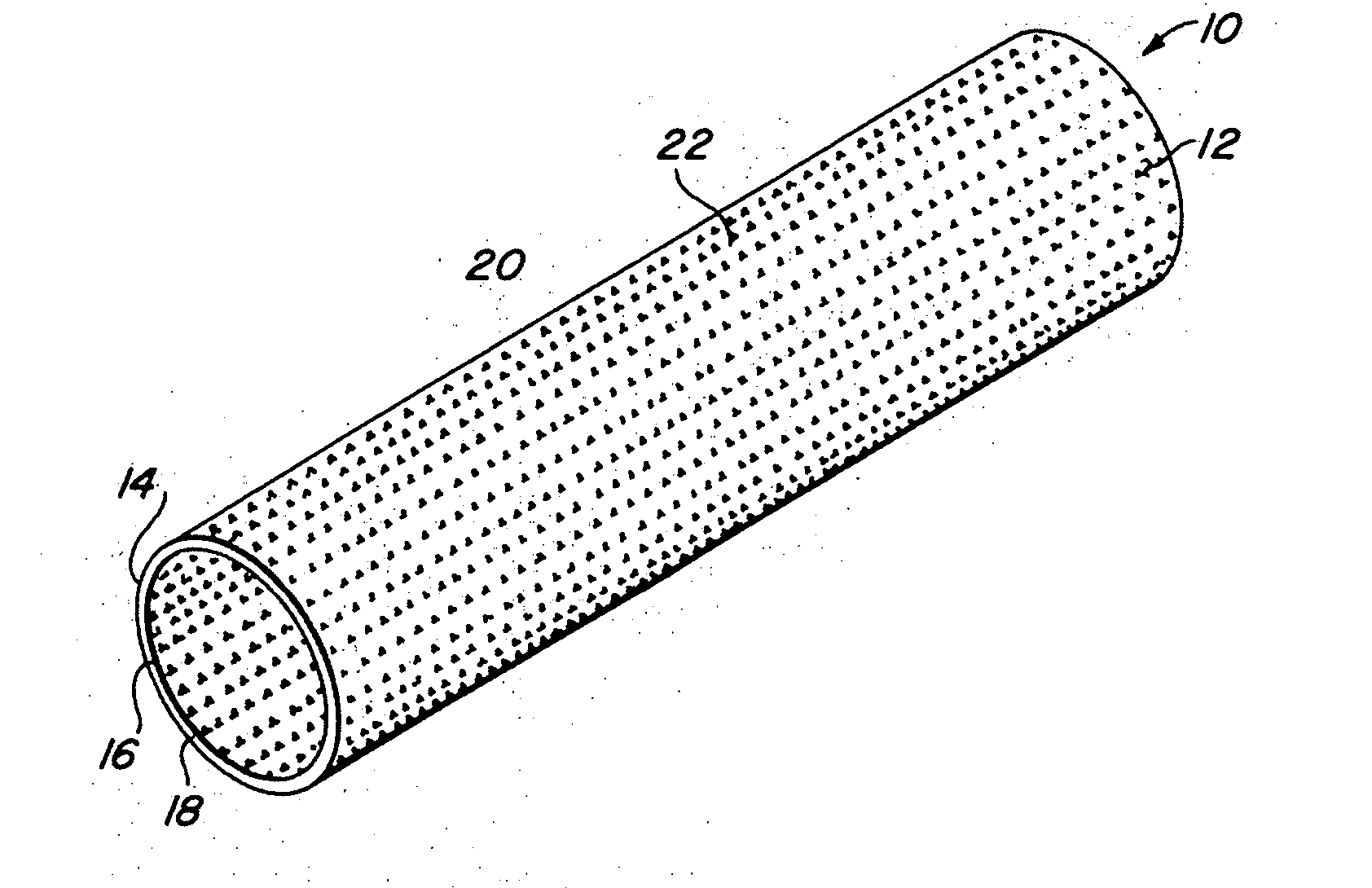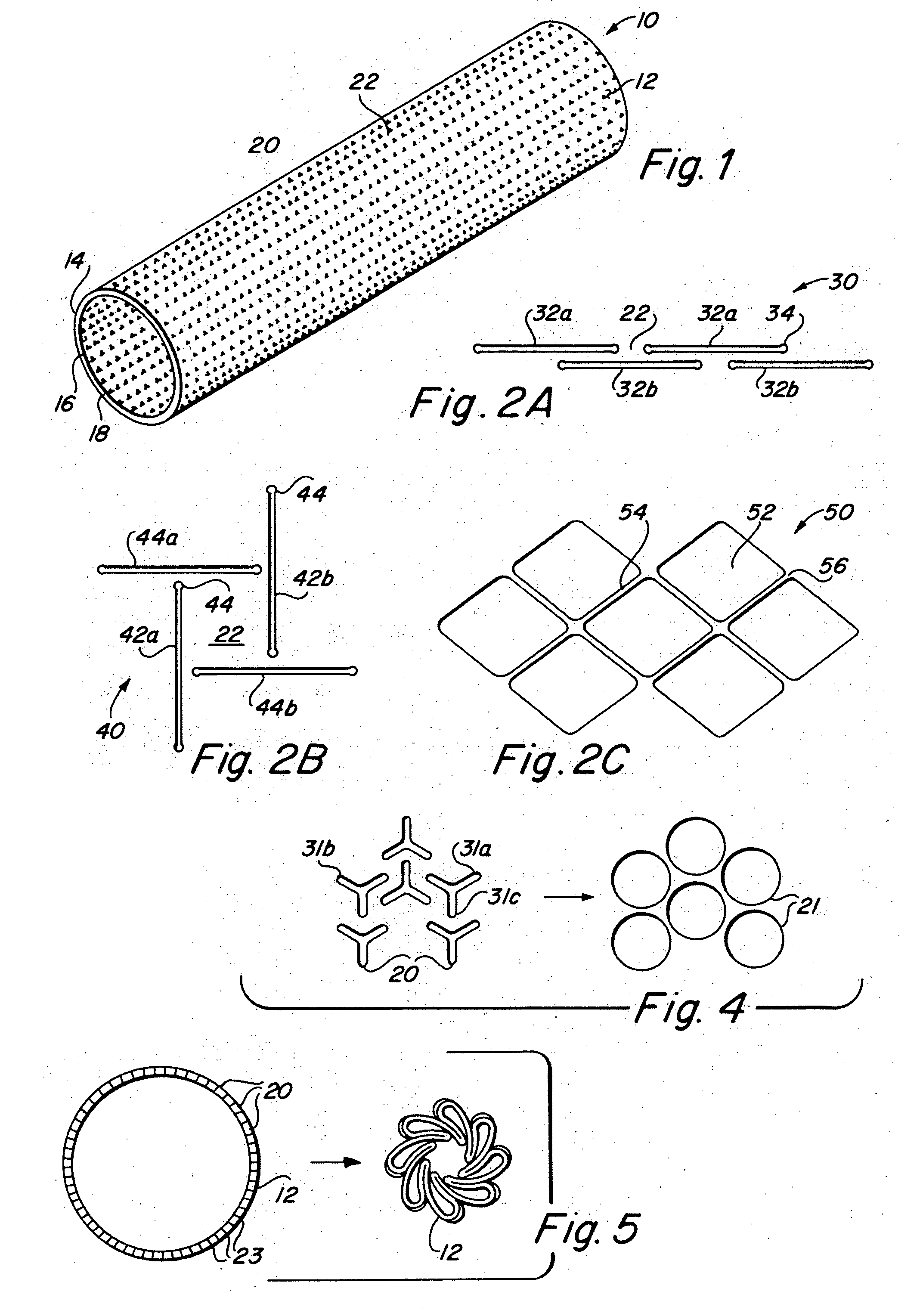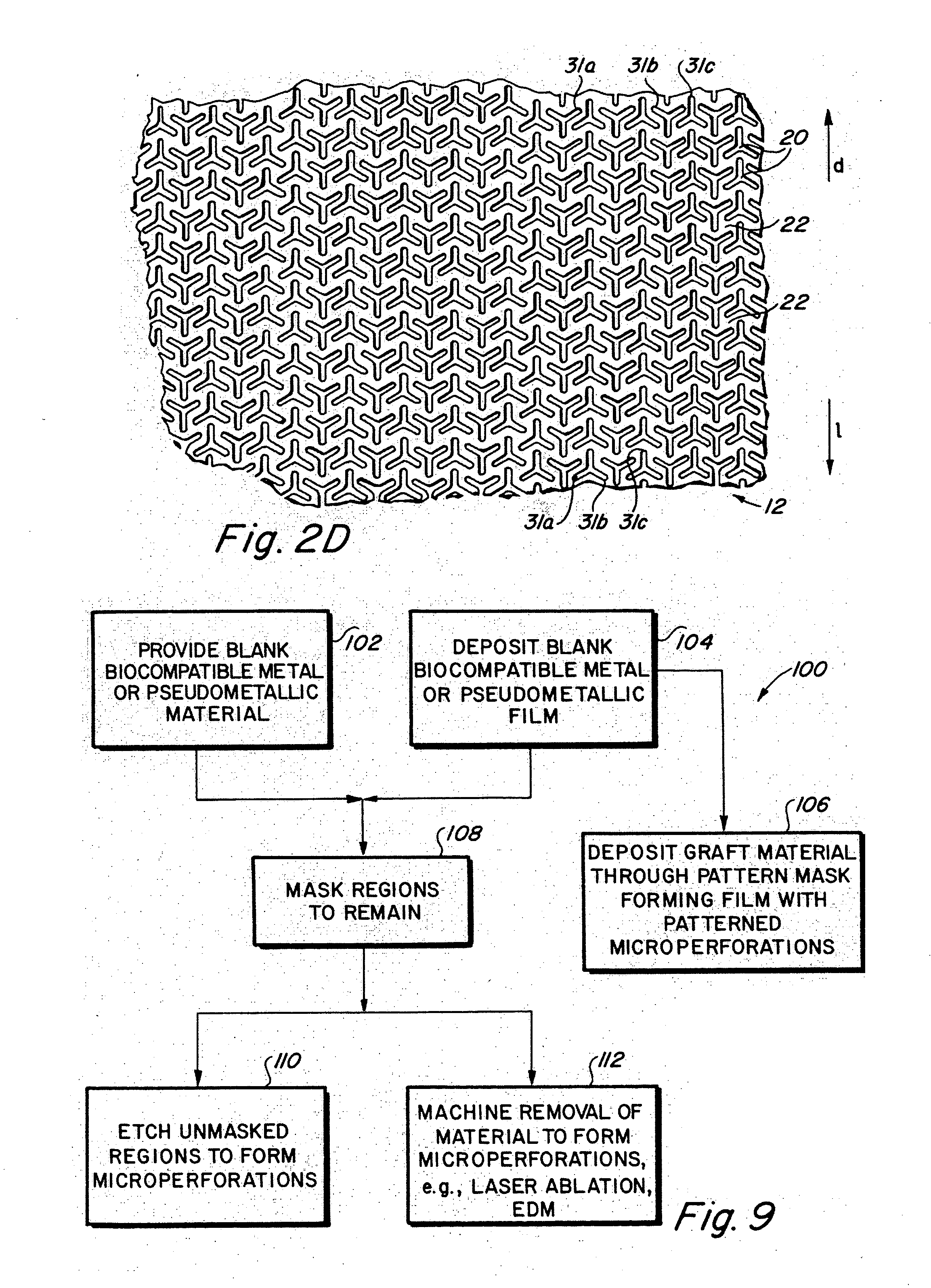Metallic implantable grafts and method of making same
a technology of implantable grafts and metals, which is applied in the field of implantable metallic medical devices, can solve the problems of short-term platelet activity and/or thrombosis of metals, metals are also susceptible to short-term platelet activity and/or thrombosis, and materials commonly used as medical grafts, such as polymers, to achieve the effect of facilitating transmural endothelialization, imparting pliability and/or elasti
- Summary
- Abstract
- Description
- Claims
- Application Information
AI Technical Summary
Benefits of technology
Problems solved by technology
Method used
Image
Examples
example
[0069] A 5 μm thick NiTi graft having a pattern of microperforations consisting of parallel staggered longitudinally oriented linear slots, each slot being 430 μm length, 25 μm width, and having 50 μm diameter fillets on each end of each linear slot, was mounted onto a 6 mm NiTi stent and delivered endoluminally to the left carotid artery of a swine. After 28 days, the swine was euthanized, and the graft explanted from the left carotid artery. Samples were prepared using standard hematoxylin and eosin staining procedures, and microscope slides prepared. As illustrated in FIGS. 10A histology of the explanted samples revealed complete endothelialization around the graft 12, negligible neointimal proliferation with the absence of trauma to the internal elastic lamina. FIG. 10B is a sample indicating cross-talk between the arterial superficial and deep layers with the transmural formation of small capillaries.
[0070] Alternate embodiments of the inventive graft are depicted in FIGS. 11-...
PUM
| Property | Measurement | Unit |
|---|---|---|
| thickness | aaaaa | aaaaa |
| thickness | aaaaa | aaaaa |
| diameter | aaaaa | aaaaa |
Abstract
Description
Claims
Application Information
 Login to View More
Login to View More - R&D
- Intellectual Property
- Life Sciences
- Materials
- Tech Scout
- Unparalleled Data Quality
- Higher Quality Content
- 60% Fewer Hallucinations
Browse by: Latest US Patents, China's latest patents, Technical Efficacy Thesaurus, Application Domain, Technology Topic, Popular Technical Reports.
© 2025 PatSnap. All rights reserved.Legal|Privacy policy|Modern Slavery Act Transparency Statement|Sitemap|About US| Contact US: help@patsnap.com



